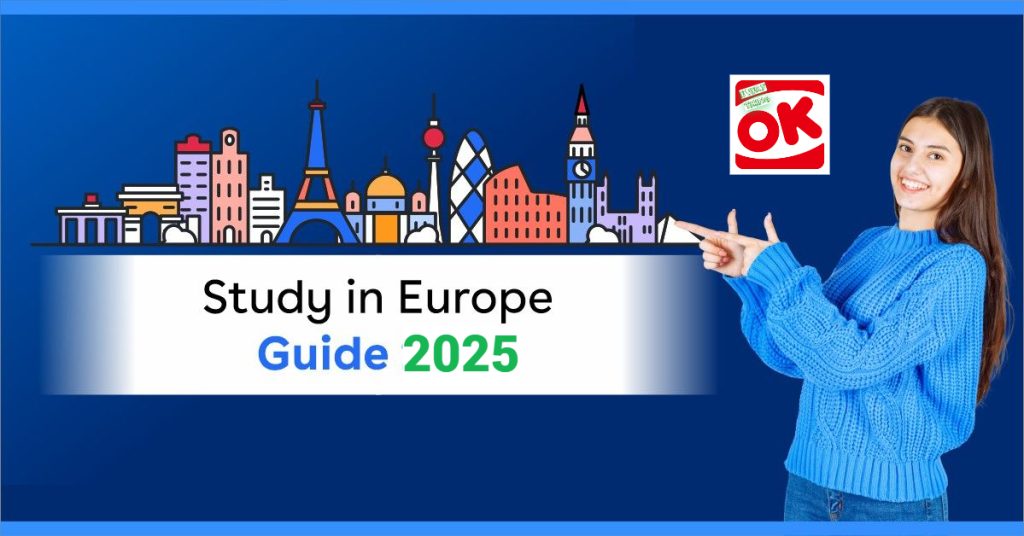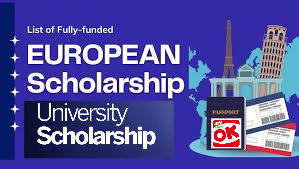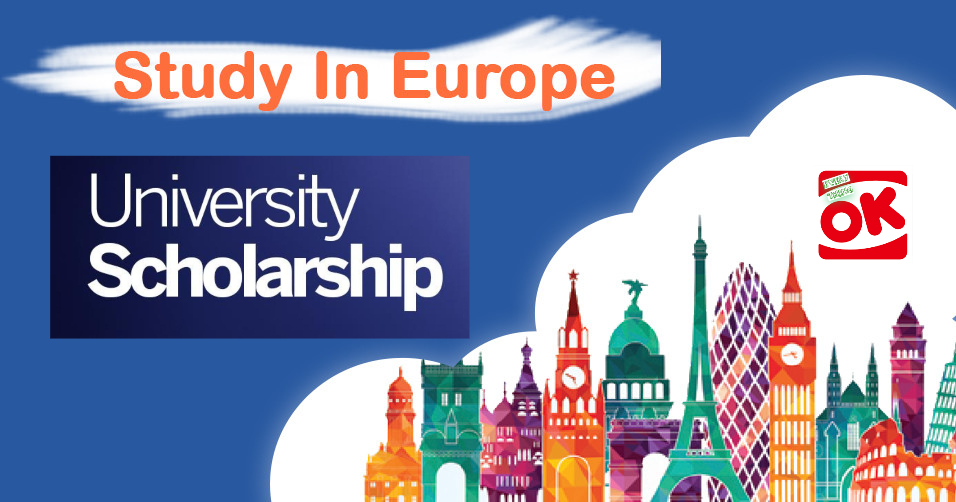Introduction to European Union Scholarships 2025
European Union Scholarships 2025 are prestigious award designed to support students from various backgrounds in pursuing higher education within EU member states. These scholarships aim to promote academic excellence, foster international understanding, and contribute to global talent development.
They cover a range of disciplines and educational levels, from undergraduate to postgraduate and doctoral studies. The EU offers numerous scholarship programs, each with unique eligibility criteria, application process, and benefits.
Types of EU Scholarships 2025
Several types of EU scholarships cater to different academic and professional needs. Among the most notable are the Erasmus+ program, which supports student exchanges, traineeships, and joint degrees, and the Marie Skłodowska-Curie Actions (MSCA), which focuses on doctoral and postdoctoral research training. Other significant scholarships include the Jean Monnet Scholarship Program and the Erasmus Mundus Joint Master Degrees (EMJMD), which provide opportunities for students to study in multiple EU countries as part of their degree program.
1. Visegrad Fund Scholarships
The International Visegrad Fund offers scholarships for students from the Visegrad Group countries (Czech Republic, Hungary, Poland, and Slovakia) to study in EU member states. The scholarships support master’s and post-master’s studies in various fields, promoting academic cooperation and cultural exchange within Central Europe. Recipients receive funding to cover tuition fees, living expenses, and travel costs.
2. Central European Exchange Program for University Studies

The Central European Exchange Program for University Studies (CEEPUS) is a collaborative academic exchange program aimed at enhancing education and research opportunities within Central and Eastern Europe. Here are some key points about CEEPUS:
Objectives
- Academic Mobility: Facilitating student and teacher exchanges to promote academic mobility within participating countries.
- Collaboration: Encouraging collaboration between universities and academic institutions in Central and Eastern Europe.
- Research and Education Quality: Improving the quality of education and research through shared resources and expertise.
Participating Countries
CEEPUS involves numerous countries from Central and Eastern Europe, including but not limited to:
- Albania
- Austria
- Bosnia and Herzegovina
- Bulgaria
- Croatia
- Czech Republic
- Hungary
- Kosovo
- Moldova
- Montenegro
- North Macedonia
- Poland
- Romania
- Serbia
- Slovakia
- Slovenia
Key Features: European Union Scholarships 2025
- Networks: CEEPUS operates through networks of universities. Each network focuses on a specific academic discipline or field of study.
- Scholarships: The program provides scholarships for students and teachers to cover travel and living expenses during their exchange period.
- Freemover Mobility: In addition to network-based exchanges, CEEPUS also allows for “freemover” mobility, where students and teachers can apply for exchange opportunities independently of the networks.
Application Process: European Union Scholarships 2025
- Network Application: Students and teachers apply through their home institution, which must be part of a CEEPUS network.
- Freemover Application: For those applying independently, applications are submitted directly to the CEEPUS Central Office.
- Selection: Applications are reviewed based on academic merit, the relevance of the proposed study or research, and the potential for enhancing collaboration between institutions.
Benefits: European Union Scholarships 2025
- Cultural Exchange: Participants gain exposure to different cultures and educational systems, enhancing their academic and personal development.
- Networking: Establishing connections with peers and academics from other countries can lead to future research collaborations and career opportunities.
- Skill Development: Participants develop valuable skills, including language proficiency, adaptability, and cross-cultural communication.
CEEPUS plays a crucial role in fostering academic cooperation and mobility in Central and Eastern Europe, contributing to the overall enhancement of education and research in the region.
3. Erasmus+ Program: European Union Scholarships 2025
The Erasmus+ program is one of the EU’s flagship initiatives, offering opportunities for students, trainees, and staff to study or work abroad. This program aims to enhance participants’ skills, employability, and intercultural awareness. Erasmus+ supports various activities, including higher education student and staff mobility, innovation cooperation, and policy reform support. Scholarships under Erasmus+ cover tuition fees, travel costs, and living expenses, making it accessible to a wide range of students.
4. Erasmus Mundus Joint Master Degrees (EMJMD)

Erasmus Mundus Joint Master Degrees are highly integrated international study programs delivered by consortia of higher education institutions from different countries. These programs aim to foster excellence and innovation in higher education and offer full scholarships to the best student candidates worldwide. EMJMD scholarships cover tuition fees, travel expenses, and a monthly subsistence allowance, providing comprehensive financial support for the duration of the study program.
5. Marie Skłodowska-Curie Actions (MSCA)
The Marie Skłodowska-Curie Actions are a set of initiatives aimed at supporting researchers at all stages of their careers. MSCA provides grants for doctoral candidates, postdoctoral researchers, and experienced researchers to conduct research and receive training in EU member states. The program promotes interdisciplinary research, international collaboration, and mobility, offering substantial financial support for salaries, research costs, and travel allowances. MSCA also emphasizes gender equality and the inclusion of researchers from diverse backgrounds.
Certainly! The European Union offers a variety of scholarships beyond the prominent ones already discussed. Additional EU scholarships provide further opportunities for students and researchers to pursue their academic and professional goals within the EU.
6. Erasmus+ International Credit Mobility (ICM)
Erasmus+ International Credit Mobility (ICM) provides opportunities for students, academic staff, and administrative personnel from non-EU countries to study, train, or teach in EU institutions, and vice versa. The program fosters international cooperation and helps participants gain valuable experience abroad. Scholarships cover travel expenses, living costs, and tuition fees for students, and provide financial support for staff mobility.
7. European Research Council (ERC) Grants
The European Research Council (ERC) offers grants to support groundbreaking research conducted by scientists and scholars at various stages of their careers. The ERC provides different types of grants, including Starting Grants, Consolidator Grants, Advanced Grants, and Synergy Grants. These grants are designed to support high-risk, high-reward research projects across all scientific disciplines. Recipients receive substantial funding to cover research costs, salaries, and equipment, promoting scientific excellence and innovation within the EU.
8. Horizon Europe Union Scholarships 2025
Horizon Europe is the EU’s key funding program for research and innovation. It offers scholarships and grants to researchers, innovators, and institutions involved in groundbreaking projects. The program aims to tackle global challenges, foster industrial competitiveness, and create sustainable growth. Scholarships under Horizon Europe support doctoral training, collaborative research, and innovation projects, providing financial resources to advance scientific knowledge and technological development.
9. European Social Fund (ESF) Scholarships

The European Social Fund (ESF) provides funding to improve employment opportunities, promote social inclusion, and enhance education and training systems within the EU. ESF scholarships support vocational training, professional development, and lifelong learning initiatives. These scholarships are often targeted at disadvantaged groups, such as the unemployed, young people, and individuals with disabilities, helping them gain skills and qualifications for the labor market.
10. DAAD-EU Scholarships 2025
The German Academic Exchange Service (DAAD) collaborates with the EU to offer a range of scholarships for students and researchers. DAAD-EU scholarships support study, research, and training opportunities in Germany and other EU countries. Programs include the DAAD Erasmus+ Master Loans, which provide financial support for students pursuing a master’s degree in Europe, and various research grants for doctoral and postdoctoral researchers.
11. Jean Monnet Scholarship Program
The Jean Monnet Scholarship Program aims to promote excellence in EU studies and support individuals wishing to pursue academic or professional development in fields related to the EU. This program is open to students, researchers, and professionals from both EU and non-EU countries. Scholarships cover tuition fees, living expenses, and travel costs, enabling recipients to undertake studies or research at European institutions renowned for their expertise in EU affairs.
12. Eligibility Criteria: European Union Scholarships 2025
Eligibility criteria for EU scholarships vary depending on the specific program. Generally, applicants must be citizens of an EU member state or a partner country, demonstrate academic excellence, and meet language proficiency requirements. Some scholarships, like the Erasmus+ and EMJMD, are open to students from around the world, while others, like the Jean Monnet Scholarship, focus on specific regions or fields of study. Additionally, certain programs may prioritize candidates from underrepresented groups or those with relevant professional experience.
Application Process
The application process for EU scholarships typically involves several stages, including the submission of an online application, academic transcripts, letters of recommendation, and a personal statement. Applicants may also need to provide proof of language proficiency and participate in interviews or additional assessments. It is crucial to carefully review the specific requirements and deadlines for each scholarship program, as these can vary widely. Successful applicants are usually selected based on their academic achievements, motivation, and potential to contribute to their chosen field.
Benefits of EU Scholarships 2025
EU scholarships offer numerous benefits beyond financial support. Recipients gain access to world-class education, cutting-edge research facilities, and opportunities for professional development. Studying in the EU allows students to immerse themselves in diverse cultural environments, enhancing their intercultural communication skills and global perspectives. Additionally, EU scholarships often include opportunities for internships, research projects, and networking, which can significantly enhance career prospects and personal growth.
Challenges and Considerations
While EU scholarships provide significant opportunities, applicants should be aware of potential challenges. The application process can be highly competitive, requiring substantial preparation and commitment. Adapting to a new cultural and academic environment can also be challenging, particularly for students who have not lived abroad before. It is essential for applicants to thoroughly research their chosen programs, seek advice from past recipients, and prepare themselves for the demands of studying in a foreign country. TIPS
Conclusion and Future Prospects
EU scholarships are invaluable resources for students and researchers seeking to advance their education and careers. By providing financial support, fostering academic excellence, and promoting international collaboration, these scholarships contribute to the development of a knowledgeable and skilled global workforce. As the EU continues to prioritize education and research, the availability and scope of these scholarships are likely to expand, offering even more opportunities for future generations of students and researchers. Prospective applicants are encouraged to stay informed about new programs and initiatives, ensuring they can take full advantage of the opportunities available.

